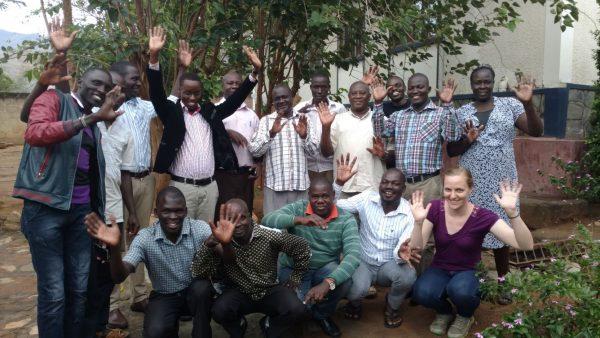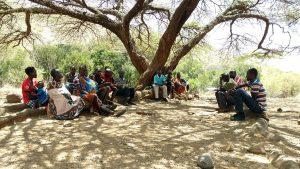-
About
- Leadership & Faculty
- News & Events
-
Admissions
-
Academics
- Graduate
- Advanced Clinical Training
- Continuing Education
-
Student Life
-
-
Accommodations
- Our Campus
-
Accommodations
- Graduate Resources
-
-
Research
-
Hospitals & Clinics
- Emergency Care
- Hospital Services
-
Community Outreach
- Volunteer
Saving Livestock to Support Livelihoods
MCM Graduate Strives to Improve the Welfare of Communities Across the Globe

Growing up in rural Wisconsin, Jeanne Coffin-Schmitt observed at a young age the connection between humans, animals, and the environment. “I saw how the decisions that the farmers made about their dairy herds and their fields and forests all fit together—they place fields strategically on hilltops to reduce erosion and have hunting strategies that they use to try and control some of the deer populations,” she says. Those childhood environmental surroundings, in conjunction with a supportive local community, would shape Coffin-Schmitt’s future.
Coffin-Schmitt amassed the knowledge and skills she needed to be successful through education and found the path to her passion through first-hand experiences. With a knack for applied research and an interest in working with communities that developed during her undergraduate years, she joined the Peace Corps and went to Morocco, working in environmental education for two years. “It ended up being an eye-opener, seeing what happens when you have deforestation and desertification due to growing populations,” she explains. “It drove me to seek additional ways to become more qualified to really help find solutions.”
And so, Coffin-Schmitt enrolled in the inaugural year of the Master of Conservation Medicine (MCM) program. There, she not only developed epidemiology proficiencies but also improved her communication and project management skills. “That was really helpful for me and set me up well for my line of work, they’re very transferable skills.”
Upon graduating from the MCM program, Coffin-Schmitt began working with global health advocacy organizations. She landed a grant-funded position working with Dr. Hellen Amuguni in conjunction with the University of Global Health Equity in Rwanda, which focused on integrating one-health into a master’s program targeted at all types of health care providers, from doctors to logisticians to veterinarians.
After her contract ended, Coffin-Schmitt was recruited by Dr. Jeffrey Mariner in September 2017 to work with him in Uganda in conjunction with the Livestock Systems Innovation Lab at the University of Florida. Until the summer of 2019, she was the Karamoja Site Coordinator for the Targeted Community Vaccination PPR Project. “We were working on a pilot study looking at a vaccine for a disease that affects goats and sheep. It also impacts people’s livelihood because mortality events during an outbreak can be 80 – 100% of a herd,” she says. “What we were trying to do was figure out better ways to distribute the vaccine and help improve animal health services in the area at the same time.”
Now that the project is completed, Coffin-Schmitt is pursuing her PhD at Cornell University but enjoyed the difference she made in her hands-on role. “It was a lot of fun to work with different community members and veterinarians. The project was very multidisciplinary,” she says. “And, it can have a huge impact on people’s livelihood if we’re able to eradicate the disease.”
